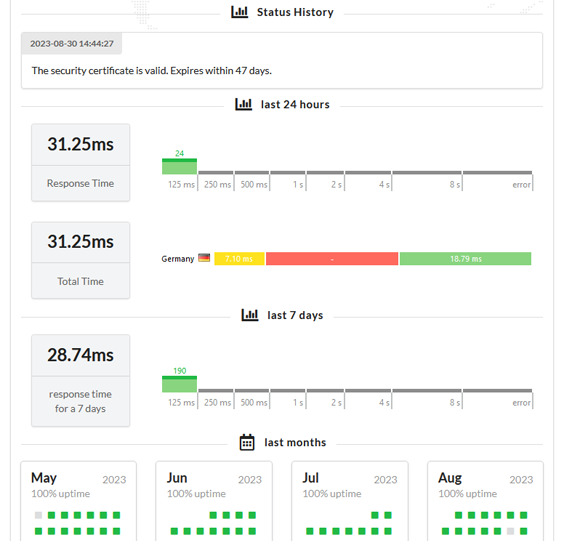By clicking "Accept", you agree to the storing of cookies on your device to enhance site navigation, analyze site usage, and assist in our marketing efforts. More Info
How to Monitor SSL Certificates?
 In the digital age, security is paramount, especially when it comes to online transactions and data exchange. SSL (Secure Sockets Layer) certificates play a crucial role in ensuring the confidentiality and integrity of sensitive information transmitted over the internet. However, SSL certificates are not set-and-forget components; they require vigilant monitoring to prevent potential security breaches. In this guide, we'll delve into the importance of SSL certificate monitoring, the risks of neglecting it, and provide you with practical steps to effectively monitor SSL certificates to maintain a secure online environment.
In the digital age, security is paramount, especially when it comes to online transactions and data exchange. SSL (Secure Sockets Layer) certificates play a crucial role in ensuring the confidentiality and integrity of sensitive information transmitted over the internet. However, SSL certificates are not set-and-forget components; they require vigilant monitoring to prevent potential security breaches. In this guide, we'll delve into the importance of SSL certificate monitoring, the risks of neglecting it, and provide you with practical steps to effectively monitor SSL certificates to maintain a secure online environment.
SSL certificates are digital passports that authenticate the identity of a website and encrypt data exchanged between a user's browser and the server. They establish trust and provide a secure connection, essential for e-commerce, online banking, and even simple website interactions. Monitoring SSL certificates is vital for several reasons:
The Risks of Neglecting SSL Certificate Monitoring
Failing to monitor SSL certificates can lead to severe consequences, both for your website's reputation and the security of your users:
Effective SSL Certificate Monitoring Strategies
To ensure the ongoing security of your online platform, follow these steps for efficient SSL certificate monitoring
SSL certificates form the bedrock of online security, and monitoring them is an essential practice to safeguard user data, maintain trust, and adhere to regulatory standards. Neglecting SSL certificate monitoring can lead to dire consequences, but with the right strategies and tools in place, you can ensure a secure and trustworthy online environment for your users. By following the steps outlined in this guide, you'll be well-equipped to detect and address SSL certificate issues proactively, bolstering your website's security and reputation in the digital landscape.
Free SSL certificate monitoring
SSL certificates serve as the foundation of online security, and it's crucial to keep a close watch on them to protect user data, maintain trust, and comply with regulatory requirements. Failing to monitor SSL certificates can lead to serious consequences. However, by implementing the right strategies and tools, you can ensure a secure and dependable online environment for your users. By following the steps provided in this guide, you'll be well-prepared to identify and resolve SSL certificate issues proactively, strengthening your website's security and reputation in the digital world. Begin your SSL certificate monitoring journey with the complimentary solution offered by Upzilla.co

